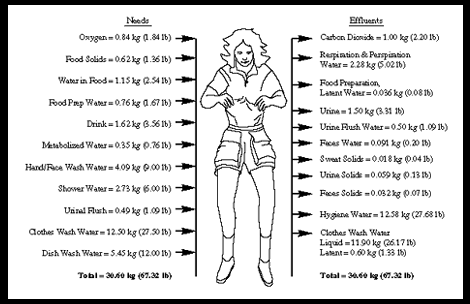K
kelvinzero
Guest
In terms of completing a mission, food and air are not too bad. I could live on half a kg of food/day easily enough and thats only 180-ish kg a year. It adds up to a few tons, but at least that gives you something to hide behind if there is a solar flare 
I definitely agree growing food and recycling air should be a priority though.
Im quite a colonization enthusiast but I notice Im pretty much alone in thinking that missions to the moon or mars have very little to do with learning how to colonize them.
99% of what we have to learn before we can begin considering to colonize another world can and should be done in simulated environments right here on earth, starting today, continuing regardless of the status of VSE or manned spaceflight. In fact we need to do it if we expect to keep living on this planet either as its resources run out and populations continue to increase.
Another way of looking at it is: If we ever do muster the will for manned missions to another world, how long do you think this resolve will last? How long did Apollo last after the first landing was completed? If you are going to go to the moon or mars dramatic colonization-related progress must begin happening immediately, because you have less than half a decade to do something very impressive before the public loses interest again, and it wont come back for at least a generation.
I definitely agree growing food and recycling air should be a priority though.
Im quite a colonization enthusiast but I notice Im pretty much alone in thinking that missions to the moon or mars have very little to do with learning how to colonize them.
99% of what we have to learn before we can begin considering to colonize another world can and should be done in simulated environments right here on earth, starting today, continuing regardless of the status of VSE or manned spaceflight. In fact we need to do it if we expect to keep living on this planet either as its resources run out and populations continue to increase.
Another way of looking at it is: If we ever do muster the will for manned missions to another world, how long do you think this resolve will last? How long did Apollo last after the first landing was completed? If you are going to go to the moon or mars dramatic colonization-related progress must begin happening immediately, because you have less than half a decade to do something very impressive before the public loses interest again, and it wont come back for at least a generation.



